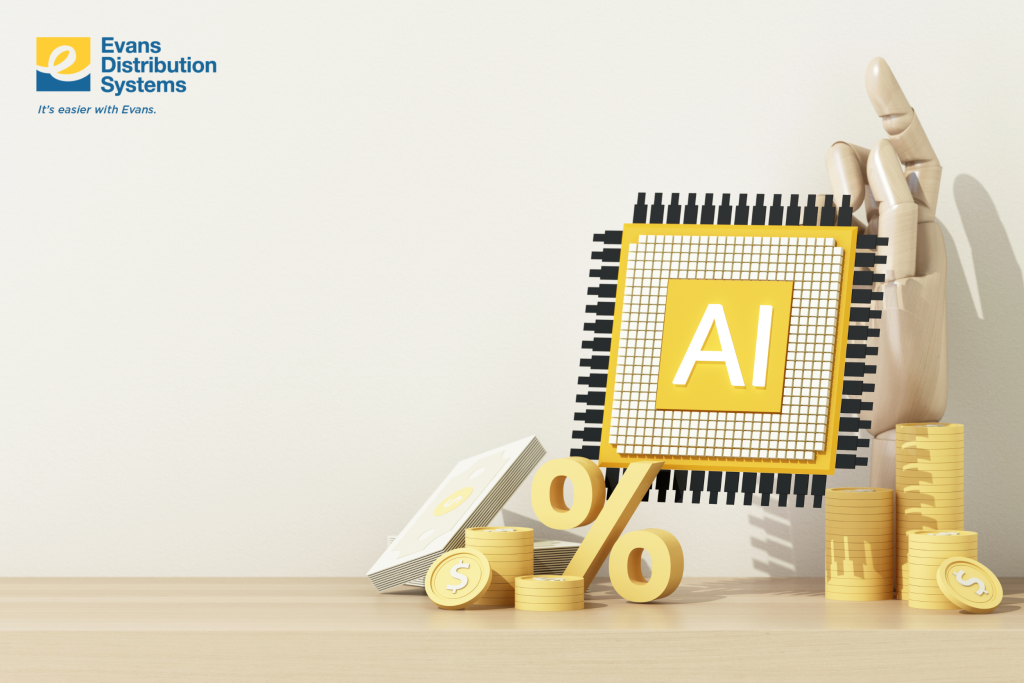
Artificial Intelligence (AI) has transformed industries across the globe, and logistics is no exception. From its early conceptualization to modern-day advancements, AI has significantly influenced supply chain efficiency, predictive analytics, and automation. Understanding the history of AI and its impact on logistics provides a roadmap for how this technology will continue to shape the industry in the future.
In this new series, we will explore the transformative impact of AI on the logistics industry, uncovering the opportunities it creates and the challenges it reshapes. Join us as we delve into how AI is revolutionizing supply chains, optimizing operations, and shaping the future of global logistics.
A Brief History of AI
Believe it or not, the concept of AI dates to ancient myths and philosophical ideas, but its scientific development began in the mid-20th century.
During the 1960s and 1970s, AI development focused on expert systems—computer programs that mimicked human decision-making in specific domains. However, these systems were limited by their inability to learn from new data. The 1980s saw the rise of machine learning algorithms, allowing computers to recognize patterns and improve performance over time.
The 21st century ushered in the era of deep learning and neural networks, driven by increased computational power and vast amounts of data. Companies like Google, IBM, OpenAI, and Amazon pioneered AI applications in various industries, leading to rapid innovation. Today, AI powers everything from virtual assistants to autonomous vehicles, with logistics being one of the most significantly impacted sectors.
AI Integration in Logistics
AI has revolutionized the logistics industry by optimizing supply chains, enhancing real-time tracking, and improving operational efficiency. Below are some of the key areas where AI is making a profound impact:
Predictive Analytics and Demand Forecasting
AI-driven predictive analytics help logistics companies anticipate demand fluctuations and plan inventory accordingly. Machine learning algorithms analyze historical sales data, seasonal trends, and external factors like weather conditions and geopolitical events to forecast future demand. This allows companies to minimize stockouts and overstocking, leading to cost savings and improved customer satisfaction.
Route Optimization and Autonomous Vehicles
AI-powered route optimization tools analyze real-time traffic conditions, weather, and delivery constraints to determine the most efficient routes. Companies like UPS and FedEx use AI to enhance their logistics networks, reducing fuel consumption and delivery times.
Autonomous vehicles, including self-driving trucks and drones, represent the next frontier in AI logistics integration. Companies such as Tesla, Volvo are developing AI-driven technology for semi-trucks that promise increased efficiency and reduced human dependency in freight movement.
Warehouse Automation and Robotics
AI has enabled the rise of smart warehouses, where automated robots work alongside human employees to streamline operations. Robotics companies like Boston Dynamics and Kiva Systems (acquired by Amazon) have introduced AI-powered robotic arms and autonomous guided vehicles (AGVs) to handle sorting, packing, and transportation within warehouses. These innovations reduce labor costs, increase order accuracy, and improve efficiency.
AI-Powered Customer Service and Chatbots
Customer service in logistics has been significantly enhanced through AI-powered chatbots and virtual assistants. These AI-driven systems provide real-time shipment tracking, address customer queries, and offer proactive updates on delivery statuses. Companies such as DHL and Maersk have implemented AI chatbots to enhance customer experience and streamline communication.
Fraud Detection and Risk Management
AI algorithms help logistics companies detect fraudulent activities and mitigate risks. By analyzing transaction patterns, shipment records, and financial data, AI can identify anomalies that indicate potential fraud or security threats. This proactive approach helps companies safeguard their assets and ensure compliance with regulatory requirements.
The Future of AI in Logistics
As AI technology continues to evolve, its integration in logistics will become even more sophisticated. Emerging trends such as AI-driven supply chain visibility, blockchain-powered smart contracts, and quantum computing will further enhance operational efficiencies. Additionally, AI’s role in sustainability efforts, such as optimizing delivery routes to reduce carbon footprints, will become increasingly important.
AI is not merely a tool but a transformative force in logistics. Companies that embrace AI-driven solutions will gain a competitive edge by enhancing efficiency, reducing costs, and improving customer satisfaction. As the logistics industry continues to evolve, AI will remain at the forefront, shaping the future of supply chain management and global trade.
